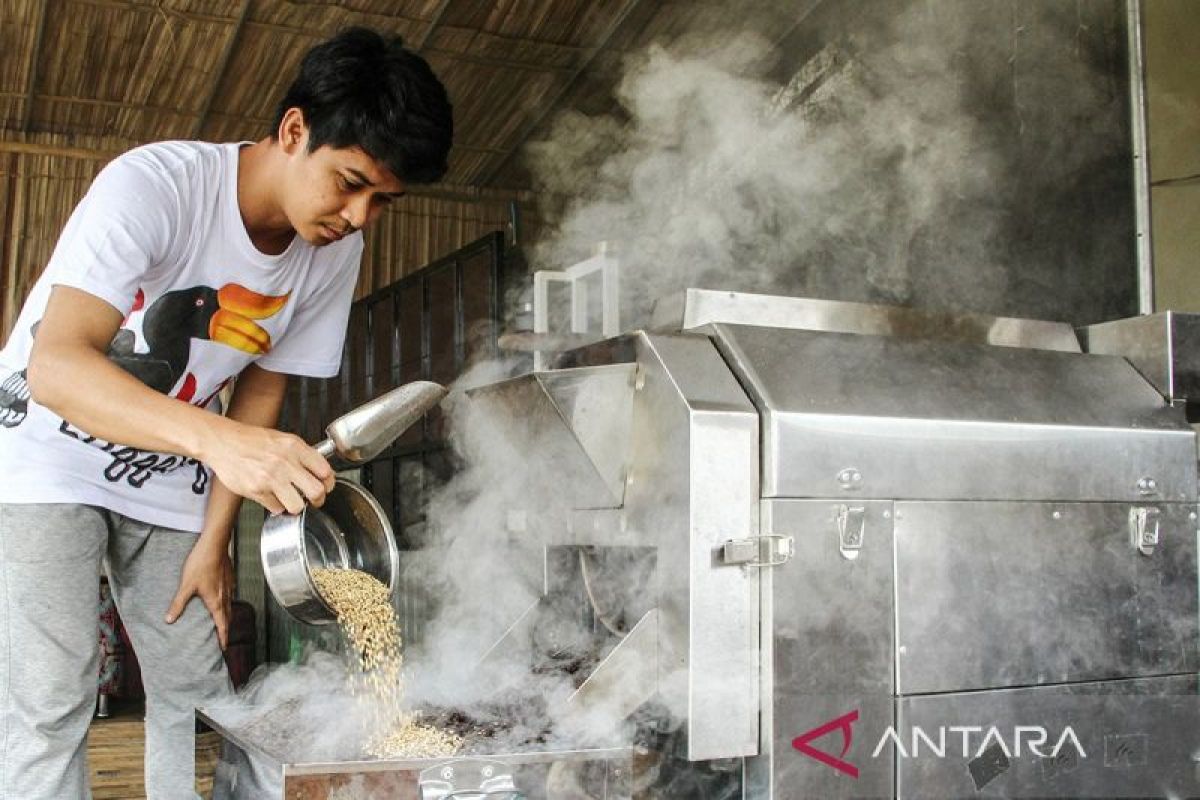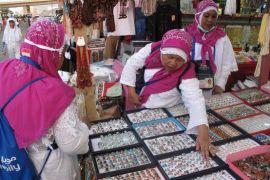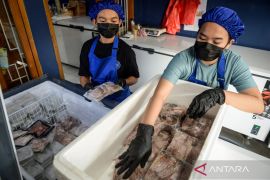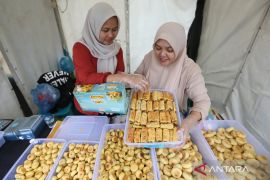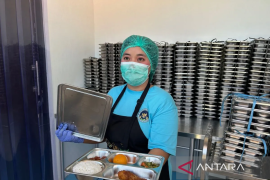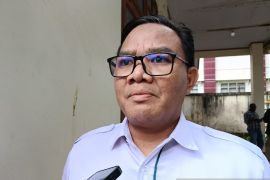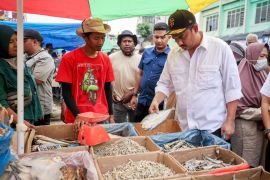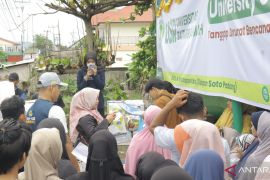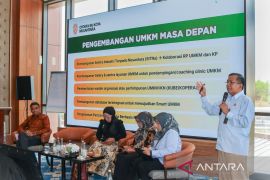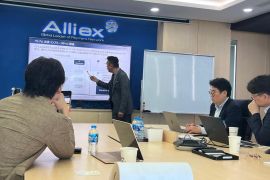President Prabowo Subianto's government has made MSMEs one of the pillars in the economic sector.
Prabowonomics—Prabowo's economic policy—focuses on food and energy sovereignty and improving the competitiveness of national industries.
The policy targets economic growth of 8 percent and the elimination of poverty by focusing on investment, exports, and strategic sectors such as agriculture, manufacturing, and technology.
However, the economic growth target is much higher than the 5 percent range achieved during former President Joko Widodo's era.
MSMEs are one of the national economic growth pillars, as Indonesia has 66 million MSME actors, accounting for 99 percent of the total business units in the country.
The government divides MSMEs into three types based on assets and turnover.
The first level is the micro level, where businesses with maximum assets of Rp50 million (US$1 = Rp15,641) and a maximum turnover of Rp300 million per year fall into this category.
Meanwhile, businesses with assets ranging from Rp50 million to Rp500 million and a turnover between Rp300 million and Rp2.5 billion per year fall into the small business category.
Medium-sized businesses have assets ranging from Rp500 million to Rp10 billion, with turnover ranging from Rp2.5 billion to Rp50 billion annually.
MSMEs also play a key role in job creation in Indonesia. This sector employs around 97 percent of the workforce in the country. This makes MSMEs a key driver of the country's economy.
Compared to other countries, Indonesian MSMEs contribute 61 percent to the national gross domestic product (GDP), higher than Germany (53.8 percent), Japan (53 percent), Thailand (43 percent), and Vietnam (38.3 percent).
Indonesian MSMEs played a key role in supporting national economic resilience during the 1998 economic crisis and the COVID-19 pandemic. During difficult times, MSMEs were crucial to economic recovery. They could quickly resume operations and adapt to the economic conditions.
In addition, MSMEs support a more equitable distribution of prosperity. As large companies are more concentrated in urban or industrial areas, MSMEs are spread across the country, including rural areas.
MSMEs provide economic opportunities for people in underdeveloped areas. To that end, MSMEs are viewed not only as economic drivers but also as a tool for supporting equitable welfare distribution.
Ministry of MSMEs
The decision to create separate ministries for cooperatives and MSMEs under President Prabowo's leadership reflects the strategic significance of MSMEs in Indonesia's economic landscape.
This ministerial division enables more concentrated government support and oversight of the MSME sector.
By creating a standalone ministry for MSMEs, the government signals its determination to harness the sector's potential in pursuing its eight percent economic expansion goal.
Through the ministry, the government can more effectively carry out programs to advance MSME businesses.
The Ministry of MSMEs can also help address the biggest challenges MSMEs face, such as expanding market and financing access, as well as technology utilization.
Since the pandemic, many MSMEs have begun switching to digital platforms to sell their products through e-commerce and social media.
Digitalization can increase the market reach of MSMEs and allow them to survive and thrive in the digital era. Hence, the government has extensively supported MSMEs through various digitization programs to improve their competitiveness.
The government also continues to increase access to financing for MSMEs, as it is believed that funding accelerates the development of MSMEs.
Increasing access to financing is expected to improve MSMEs so that they can start exporting their products. MSMEs are urged to upgrade until they go global, including participating in the global value chain.
To this end, the government has issued various forms of financing for MSMEs, such as the Smallholder Business Credit (KUR) with low interest and easy conditions.
The State Budget, sharia financing, and other financial instruments also support the distribution of ultra-micro financing.
MSME Minister Maman Abdurrahman is currently shifting focus from reliance on the State Budget to broader financing options through partnerships with state-owned enterprises and private sector entities.
MSME empowerment programs, such as those carried out by state-owned companies, can serve as a model for collaborative programs to elevate MSMEs by improving their insights into technology.
These collaborations, along with government support and regulatory strengthening, are expected to accelerate the growth of MSMEs in Indonesia and help them continue driving sustainable economic growth.
Related news: Problem identification can help MSMEs accelerate exports: Minister
Related news: Indonesia's new minister aims to boost MSME financing access
Translator: Faisal Y, Kenzu
Editor: Anton Santoso
Copyright © ANTARA 2024
